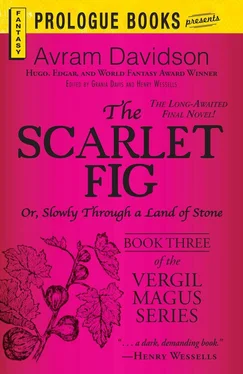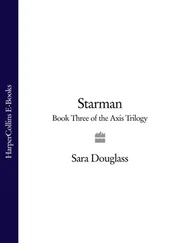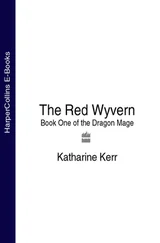He had, by grammar, made a sentence. A statement. But by tone, it was a question. Vitruvius and his architectural jars which swallowed sound, as the vatic chauldrons of Dordona produced it: Vitruvius would clean comprehend this. But an antic notion: produced it? released it? consider if the words of some drama, swallowed up in some theater, should echo forth from the sacred soup kettles in the oaken-wooded holy hills of Aelian Dodona? — or the words of an emperor thus absorbed from an audience chamber? what might pilgrim worshipers make of it? … antic indeed …
“Or some metal not quite known,” she said. “ — or no longer known —”
“Like that missing wind no longer found in the Rose of All the Winds?”
Her face and its considering, sometimes almost brooding, look: her face, the lightest shade of dark … for dark had as many shades as light … her face, on either side of which now grew a richer tint with a slight flush reminiscent of the second bloom of the twice-blooming roses of Paestum, her face. “Or some metal not quite known?” here she it was who asked a question. Yet there was in it a sentence, a declaration of fact — me Herc! here he was, a thousand miles or more from the black navel-stone of all the world, upon the marshes of the Maurs and of the Troglodytes, and he bethought him now of rhetoric!
“But one?” he asked. “Only one? One such not-quite-known-metal alone?”
Reflectively: “Well … I speak now of silver. Certainly I believe that with silver, that behind silver, or within silver, there sometimes lies secluded a severalty of metals otherwise —
“— not quite known,” he finished. He repeated. “And what —”
“Of one I know nothing more, save that it is of a silvery sheen, and yet coarser … and yet stronger, baser, harsher. Of another, I only know that it is somehow finer than silver. Neither of these tarnish; does the moon-Diana tarnish? And of course one knows of silver and lead, of silver in lead, as one does of copper … and perhaps bronze.” Thus she said, speaking to him easily enough. The motes of dust suddenly danced again in the sunlit air. He turned his eyes to see if she had noticed. And, as he did, heard a voice, a man’s voice: Speak to me never of bronze : low, intense, quick. Astonished, he recognized it. It was his own voice. And yet he knew that his mouth was closed, and that he had, actually, said nothing. She heard the voice clearly, clearly she had understood him, she showed no change of countenance, she lifted not her eyes nor made no sign. The vatic voice … After a moment she went on, “But I am also thinking of something called antimony …”
But, then and thereafter, forever more, she never spoke to him of bronze.
In his ordinary voice and manner, asked, “You believe that there is antimony?”
Emphatically: “I know that there is antimony And that it is not a fantasy, not a legend nor a myth. It is nothing like, oh, the tears of the daughters of Meleager turning into amber. And I believe that it is quite true it has a melting point below that of lead. I know it so.” How she knew it, he asked her not.
They were sitting facing one another then, and she had leaned slightly forward and placed her light hand atop of his own right hand, so much heavier. She knew many things, this one, this woman whom Vergil was coming to know. “Had you this silver from your Father?” he asked, on the impulse. “Or was your Mother privy to the secrets of those secret ores, as are you?” He did not ask if mother or father had been privy to or had given her the way of those secret airs, those gauze-like veils of mist or what were they, by means of which she concealed her coasts from the knowledge of alien ships, vessels not expected. She had her own motives and her own mantic arts. Her own means and methods. He asked himself, had he a hidden harbor, the key to a rich coast and an even-richer hinterland — and: suddenly: he wished he had — would he want to make it known to hordes and hosts of interlopers, stinking ships laded with cheap pots made hideous with “decorations” of Gorgons’ heads, and cheap cloth dyed bright and gaudy with colors certain to fade at the first washing or, at most, the second? merchandise certainly not sold cheaply? — he remembered the broken trash in the market at Loriana of Corsica — ships which might unlade those who would break and tear and wound the earth for its ores and enslave the people to work it, and set up fires and furnaces which would poison and would taint the air and sully the soil with the sweet venomous fumes of mercury? cut down such trees as did not turn black and useless? Would he — No. He would not. And neither would she, and neither did she.
Huldah, perhaps kenning nothing of these thoughts … perhaps … Huldah told him of her father, he the son of a Carthagan mother and a Roman sire: but she never said if he were of that illustrious bastard race for whom Scipion had builded a whole city of settlement in Aspamia; nor did Vergil ask. She did not move to remove his other hand upon her right one. She told him, too, of her mother, daughter of Cyrenia. “They Lybyans are not all of the Barbarians’ race,” said she. “Not all of them are Barberi.” Mother, daughter of a Lybyan woman and an Etruscan father. At every level in Yellow Rome and amongst the Romans, one encountered Etruscans. The very religion of the Romans was tightly knotted in with that of the augurs and haruspeces of Etruscany: wherever the omens were taken, whenever the auspices were sought, one heard the language of the Etruscans. And yet no Roman spoke nor understood the language of the Etruscans.
Save Vergil.
He had spoken in it to her once, without emphasis or any sidelong or upward look which might say, Observe and hearken now to this rare thing which I am doing, and be astonished, thou … And she had responded to him in that tongue, herself showing nothing extraordinary. And so they had spoken in it, oft. There was more and more to her each time he was with her, and each time he spoke to her; and now, their hands adjoined, he was looking into her eyes, eyes the color of a certain agate-stone, and in the darker part of them he looked: and he saw within them (in her phrase) Far ago far. Within the darkness of her eyes, so different from his own grey-green ones, he saw within the darkness of her eyes the embers of ancient watchfires upon distant coasts, strange and distant but in no way fearful, and he saw also that sometimes those embers glowed in travelers’ fires in many remote interiors. He was realizing, had come to realize, that Huldah was a continent, one of and unto herself; and that knowing Huldah was to know, gradually, and with certainty, as it were the certain roads of such a continent, its paths and peaks and climates, its stars seen from different angles in the night-time skies. In himself, he was, as it might be, saying: I have known Asia the Less and Asia the More, I have known all of Europe, I have known Africa. And now I am knowing Huldah.
“Of silver and its sorts,” she said now, “I have learned much. And from them, and not alone from them.”
He told her now of some of the simpler signs of the occymists. “Sometimes they too mean silver when they say Diana — ”
Nearby an aeolian harp sang its sweet and unconstrained music, played only by the winds; from somewhat farther away, a dull repetitive sound told that someone was pounding grain in a wooden mortar with a wooden pestle; he would have found the task monotonous, but whoever was husking now might not: there was, to be sure, a pleasure in even the most simple accomplishment, and, as the old country-folk had it, Many a little makes a lot. And, besides, those who tilled the earth for bread required that the grain be husked and ground before it might be baked. Baking might indeed be thought of as the first occymy. “And how,” she asked, as always, keen to learn of new things; “and how do they draw Diana — ?”
Читать дальше











